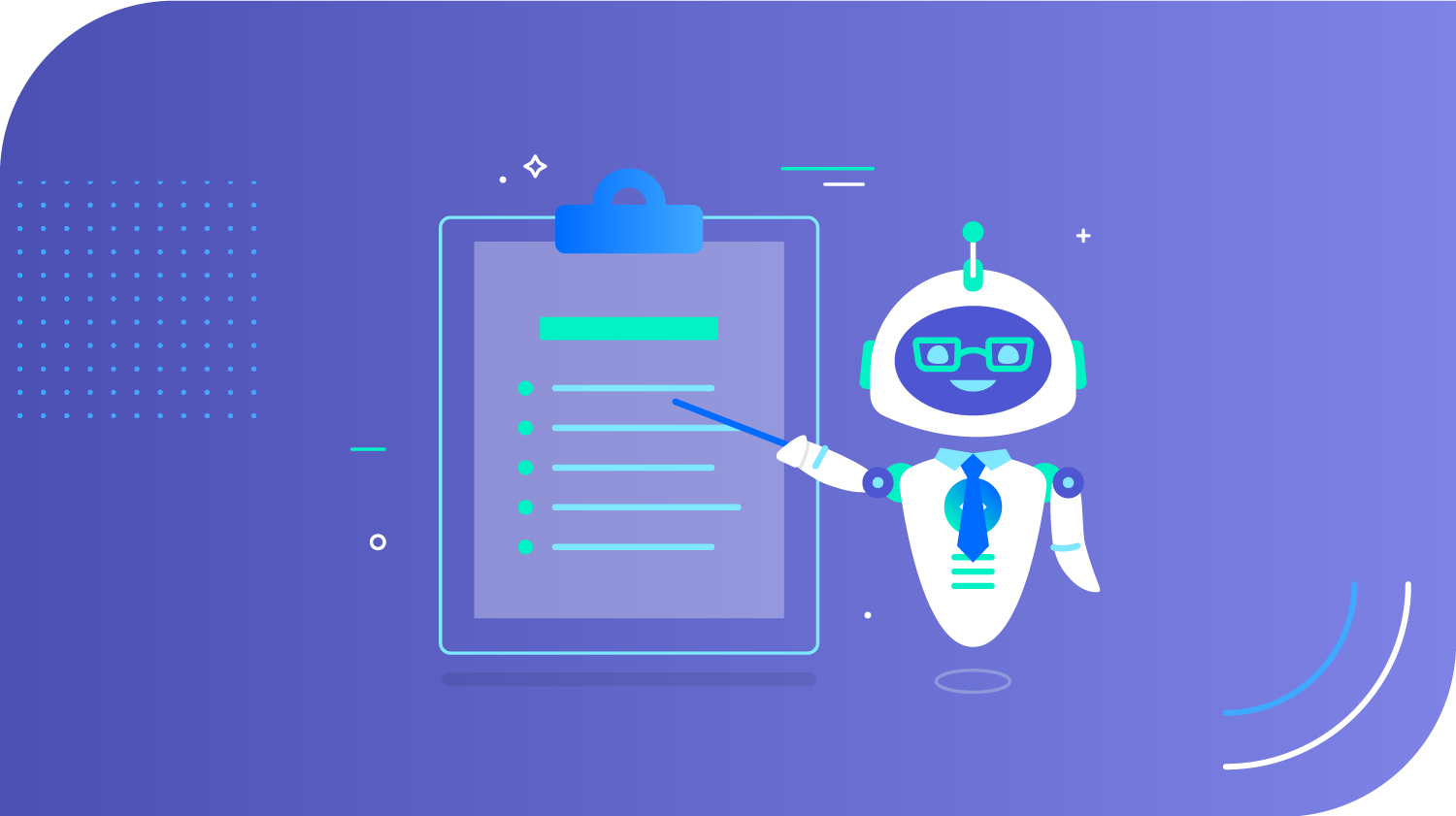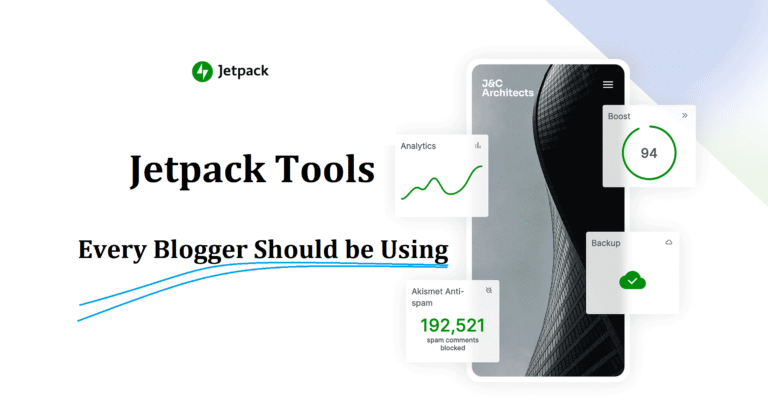AI for Blogging: Making Writers Lazy or More Productive?

We asked AI to save us time. Turns out, it’s also saving us from thinking too hard.
Last year, my neighbor asked me what I do for work.
When I told her I’m a blogger, she rolled her eyes and said, “Oh, so you just let AI write everything for you now?”
I wanted to throw my coffee at her (okay, it was wine at 3 PM, don’t judge), but honestly? Her comment hit harder than I expected because I’d been wrestling with the same question myself.
Is AI for blogging making writers lazy or are we just getting smarter about how we work? After several months of deliberately using AI tools for everything from brainstorming to editing, I’ve got some thoughts that might surprise you.
Spoiler alert: it’s complicated as hell.
My Journey Down the AI Rabbit Hole

A few years ago, I was that blogger who prided herself on writing every single word manually.
I’d spend three hours crafting the perfect opening paragraph, then another two hours agonizing over whether “utilize” sounded better than “use.”
Then ChatGPT exploded onto the scene, and suddenly everyone was talking about 10x productivity and automated content creation.
My Twitter or X feed became a battleground between “AI will replace all writers” and “AI is just a fancy autocomplete.”
I decided to test it myself.
Not because I wanted to be lazy (though honestly, who doesn’t want to work smarter?), but because I was curious whether these tools could actually make my content better without turning me into a mindless copy-paste machine.
My Great AI Experiment: What I Tested
Here’s what I committed to for six months:
Month 1-2: Used AI for brainstorming and outlining only
Month 3-4: Let AI write first drafts, then heavily edit
Month 5-6: Mixed approach – AI for some tasks, manual for others
I tracked everything obsessively (because I’m a data nerd like that):
- Time spent per article
- Content quality scores using Grammarly and Hemingway
- Reader engagement metrics
- My own satisfaction with the final product
- Comments and feedback quality
The results? Way more nuanced than the black-and-white debates online.
Where AI Truly Made Me More Productive (Not Lazy)

Research and Fact-Checking Speed
Holy shit, this was a disruptor.
Instead of falling down Wikipedia rabbit holes for three hours (we’ve all been there), I could ask Claude or ChatGPT for quick fact checks and starting points.
Example: I was writing about email marketing metrics and needed current industry benchmarks. Instead of digging through ten different studies, I asked AI for the latest average open rates by industry, then verified with primary sources.
Time saved: About 45 minutes per research-heavy article.
Quality impact: Actually better, because I had more time to verify information instead of just grabbing the first stat I found.
Breaking Through Writer’s Block
You know that feeling when you’re staring at a blank document (this is where we drew our SEO description from), cursor blinking mockingly?

AI became my brainstorming buddy for those moments.
I’d feed it my topic and ask for 20 different angles. Most suggestions were garbage, but 2-3 would spark something interesting. It’s like having a writing partner who never gets tired of throwing out ideas.
The key insight: AI didn’t replace my creativity – it amplified it by getting me unstuck faster.
SEO Research and Optimization
Tools like Frase AI and Surfer SEO use AI to analyze top-ranking content and suggest keyword variations I’d never think of. This isn’t about keyword stuffing (please don’t do that) – it’s about understanding what searchers actually want.
For my post about what is AI blogging 101, AI suggested including sections on “AI blogging mistakes” and “AI blogging strategies” – angles I hadn’t considered but were clearly important to readers.
Result: My average time-to-rank improved from 6 months to 3-4 months for new posts.
Where AI Made Me Lazy (And I Had to Course-Correct)

The First Draft Trap
Month 3 was rough.
I got seduced by the idea of having AI write complete first drafts while I sipped wine and felt like a productivity guru.
The results were… mediocre.
Technically correct but bland as hell. No personality, no unique insights, no “holy crap, I never thought of it that way” moments that make readers actually care.
I published two articles like this before realizing they felt like they could have been written by anyone, about anything, for any audience.
Generic AF.
The wake-up call: A longtime reader commented, “This doesn’t sound like you at all. Everything okay?” Ouch.
Over-Reliance on AI-Generated Headlines
Remember my title generator experiment?
Well, I got addicted to AI-suggested headlines and stopped thinking critically about whether they matched my brand voice.
I almost published “17 Insane Productivity Hacks That Will Blow Your Mind” before catching myself.
My audience hates clickbait, and that title would have destroyed my credibility faster than posting MLM content.
The Research Shortcut Problem
AI summaries are convenient, but they can create blind spots. I caught myself accepting AI-provided “facts” without digging deeper, which is dangerous territory for any blogger who wants to maintain credibility.
Case in point: AI told me that “75% of content marketers use video” without specifying the source or survey methodology. When I dug deeper, I found three different studies with wildly different percentages depending on company size and industry.
Lesson learned: AI can point you toward information, but you still need to verify and understand the context.
Productivity vs. Quality Debate

Here’s where things get interesting.
My data showed that AI tools definitely made me faster – I went from 6-8 hours per long-form post to 4-5 hours. But what about quality?
Metrics that improved:
- SEO optimization scores (Frase went from 65 to 85 average)
- Grammar and readability (fewer editing rounds needed)
- Research depth (could cover more angles in the same time)
- Publishing consistency (from 2 posts/week to 3)
Metrics that stayed the same or declined:
- Social shares (people weren’t sharing AI-heavy content as much)
- Comment quality (fewer in-depth discussions)
- Email newsletter clicks (lower engagement on AI-assisted posts)
- Time on page (readers weren’t staying as long)
The pattern was clear: AI helped with technical aspects but didn’t create the emotional connection that drives real engagement.
What I Learned About Different AI Tools
ChatGPT/Claude (General AI)
Best for: Brainstorming, explaining complex topics, creating outlines
Worst for: Brand voice, personal anecdotes, controversial takes
Price: $20/month for ChatGPT Plus; Claude has a free tier
These are Swiss Army knives – useful for many tasks but not specialized. Great for breaking through creative blocks or getting different perspectives on a topic.
Jasper AI
Best for: Marketing copy, social media content, maintaining a consistent tone
Worst for: Long-form articles, research-heavy content
More expensive but better at maintaining brand voice across different content types. The templates are solid, but you need to train it on your writing style first.
Copy.ai
Best for: Short-form content, email subject lines, product descriptions
Worst for: Anything requiring deep expertise or nuanced takes
Similar to Jasper but with more templates. Good for content creators who need lots of different formats (social posts, ads, emails).
Grammarly GO (AI Writing Assistant)
Best for: Improving existing content, catching tone issues
Worst for: Creating original content from scratch
This became my favorite because it enhances rather than replaces human writing. Catches when I’m being too formal or when my sentences are getting too complex.
Surfer SEO (AI Content Editor)
Best for: SEO optimization, content structure recommendations
Worst for: Creative elements, brand voice
Expensive but worth it if SEO traffic is important to your blog. The AI suggestions for content structure based on top-ranking pages are incredibly valuable.
Skills AI Can’t Replace (Thank God) 🙏
After months of experimentation, here’s what I’m convinced AI will never be able to do well:
Personal Experience and Storytelling
AI can’t tell the story of how I almost quit blogging after my worst month ever, or share the specific moment I realized I was writing for search engines instead of humans.
These personal narratives are what build real connections with readers.
Controversial or Nuanced Takes
AI plays it safe. It won’t say “most blogging advice is bullshit” or take a strong stance on industry debates.
But those controversial takes are often what make content memorable and shareable.
Industry Context and Insider Knowledge
When I write about the frustrations of dealing with algorithm changes or the reality of blogger burnout, I’m drawing from lived experience that AI simply doesn’t have.
Knowing When to Break the Rules
AI follows patterns from its training data.
It won’t tell you to ignore SEO best practices for the sake of reader experience, or when to publish a 500-word rant instead of a 2,000-word guide.
Real Question: What’s Lazy vs. What’s Smart?
Here’s where I landed after months of soul-searching and data analysis:
Using AI is lazy when:
- You publish AI-generated content without adding your own insights
- You stop learning about your topic because AI “knows everything”
- You let AI make creative decisions without considering your audience
- You use it to avoid the hard work of developing your own voice and expertise
Using AI is smart when:
- It speeds up research so you can focus on analysis and insights
- It helps you overcome creative blocks and explore new angles
- It handles tedious tasks (like initial SEO optimization) so you can focus on connecting with readers
- It serves as a writing partner, not a replacement
The difference is intention and involvement. Are you using AI to enhance your capabilities or to avoid developing them?
My Current AI-Human Hybrid Workflow 🔄
After all this experimentation on AI for blogging, here’s what actually works for me:
Planning Phase (20% AI, 80% Human):
- AI helps brainstorm angles and research starting points
- I decide which ideas align with my audience and expertise
- I create the outline and determine key messages myself
Research Phase (40% AI, 60% Human):
- AI provides quick fact-checks and background info
- I verify everything with primary sources
- I look for gaps in AI knowledge and fill them with original research
Writing Phase (10% AI, 90% Human):
- I write the first draft myself (this is where the magic happens)
- AI helps with awkward sentence restructuring
- I use AI for initial SEO optimization suggestions
Editing Phase (30% AI, 70% Human):
- Grammarly GO catches tone and clarity issues
- AI suggests headline variations
- I make final decisions on everything
This approach increased my productivity by about 35% while maintaining (and sometimes improving) content quality.
What No One Tells You About AI and Content Creation
Here’s what most bloggers won’t admit: we’re all terrified that AI will make us obsolete, but we’re also secretly hoping it will make our jobs easier.
The reality is messier than either extreme.
AI is incredibly powerful for certain tasks and absolute garbage for others. The bloggers who figure out which is which will thrive. The ones who try to use AI for everything (or refuse to use it at all) will struggle.
I’ve seen bloggers pump out 20 AI-generated articles per day and wonder why their engagement sucks. I’ve also seen bloggers spend 12 hours on a single post because they refuse to use any AI assistance for research or optimization.
Both approaches miss the point: AI is a tool, not a strategy.
What This Means for New Bloggers
Hey beginners. If you’re just starting out, here’s my honest advice:
Don’t use AI as training wheels. Learn to write, research, and think critically first. AI should enhance skills you already have, not replace skills you haven’t developed yet.
Focus on developing your unique voice and perspective. This is the one thing AI absolutely cannot replicate, and it’s what will set you apart in an increasingly crowded content landscape.
Use AI strategically. Let it handle the tedious stuff (initial keyword research, grammar checking, fact verification) so you can spend more time on the creative and strategic elements.
Stay curious about your niche. AI can summarize existing knowledge, but it can’t develop new insights or spot emerging trends. That’s still on you.
Future: Coexistence, Not Replacement

After the intensive testing, I’m convinced that the “AI vs. humans” debate is fundamentally wrong.
The future isn’t about replacement – it’s about collaboration.
The bloggers who succeed will be those who use AI to amplify their strengths rather than mask their weaknesses.
They’ll use it to research faster, write clearer, and optimize better, but they’ll still bring the human elements that make content worth reading: experience, perspective, humor, controversy, and genuine insight.
AI might be making some bloggers lazy, but it’s making the smart ones more productive.
The difference comes down to how intentionally you use it and whether you’re still committed to developing your own skills and voice.
My Honest Assessment
So, is AI making bloggers lazy?
Some of us, definitely. But for those who use it thoughtfully, it’s making us more productive without sacrificing quality.
My engagement metrics are back to pre-AI levels (actually slightly higher), but I’m publishing 50% more content and spending less time on research and optimization. That extra time goes into developing better ideas, connecting with readers, and improving my craft.
The key insight: AI doesn’t make you lazy – it reveals whether you were already lazy. If you were cutting corners before, AI will help you cut more corners.
If you are committed to quality, AI will help you create better quality content more efficiently.
Bottom Line: It’s Not About the Tool, It’s About the Craftsperson
After testing every AI tool I could get my hands on and nearly losing my writing voice in the process, here’s what I know for sure: AI for blogging is neither the death of blogging nor its salvation.
It’s just another tool in the toolkit.
The question isn’t whether AI is making bloggers lazy – it’s whether individual bloggers are choosing to be lazy with AI.
The technology amplifies whatever approach you bring to it.
Use it to research faster, overcome creative blocks, and polish your prose. But don’t use it to avoid the hard work of developing expertise, understanding your audience, or finding your unique voice. Those human elements are what make content worth reading, and no AI can replicate them.
The future belongs to bloggers who can blend the efficiency of AI with the irreplaceable value of human insight, experience, and creativity.
That’s not lazy – that’s evolution.
Now, if you’ll excuse me, I need to go write a completely human, AI-free rant about why pineapple belongs on pizza. Some battles require the full force of human passion. 🍕
FAQs
Will AI replace human bloggers entirely?
Not in the foreseeable future. AI can handle technical writing and basic informational content, but it can’t replicate personal experience, controversial takes, or genuine expertise.
The bloggers most at risk are those who were already producing generic, templated content.
Which AI tools are actually worth paying for?
Depends on your needs. For most bloggers, I’d recommend starting with ChatGPT Plus and Grammarly GO.
Only invest in more expensive tools like Frase or Surfer SEO if you’re publishing multiple posts per week and have the budget.
How can I tell if my content is becoming too AI-dependent?
Track your engagement metrics. If comments, shares, and time-on-page are declining, you might be losing your human voice.
Also, ask yourself: would I be able to write about this topic without AI assistance? If not, you might be over-relying on it.
Is it ethical to use AI for content creation without disclosing it?
This is still being debated, but I believe in transparency. I don’t disclose every time I use AI for research or editing (that would be annoying), but if AI significantly contributed to the content, I mention it.
Build trust with your audience by being honest about your process.
How do I maintain my writing voice when using AI tools?
Use AI for structure and research, but write the actual content yourself. When AI does suggest content, heavily edit it to match your tone.
Read everything out loud – if it doesn’t sound like something you’d say in conversation, rewrite it.
What’s the biggest mistake bloggers make with AI?
Treating it like a magic button that solves all their problems. AI amplifies existing skills – if you’re a bad writer, AI won’t make you good. If you don’t understand your audience, AI won’t fix that.
Work on fundamentals first, then use AI to scale what’s already working.
Should new bloggers avoid AI tools entirely while learning?
Not entirely, but they should be careful. Use AI for research and fact-checking, but write your first 20-30 posts completely manually to develop your voice.
Once you know what your natural writing style sounds like, you can use AI to enhance it without losing yourself.
Want more honest takes on blogging tools and trends? Subscribe to Blog Recode, where I test everything so you don’t have to – and share the unfiltered results, good and bad.





